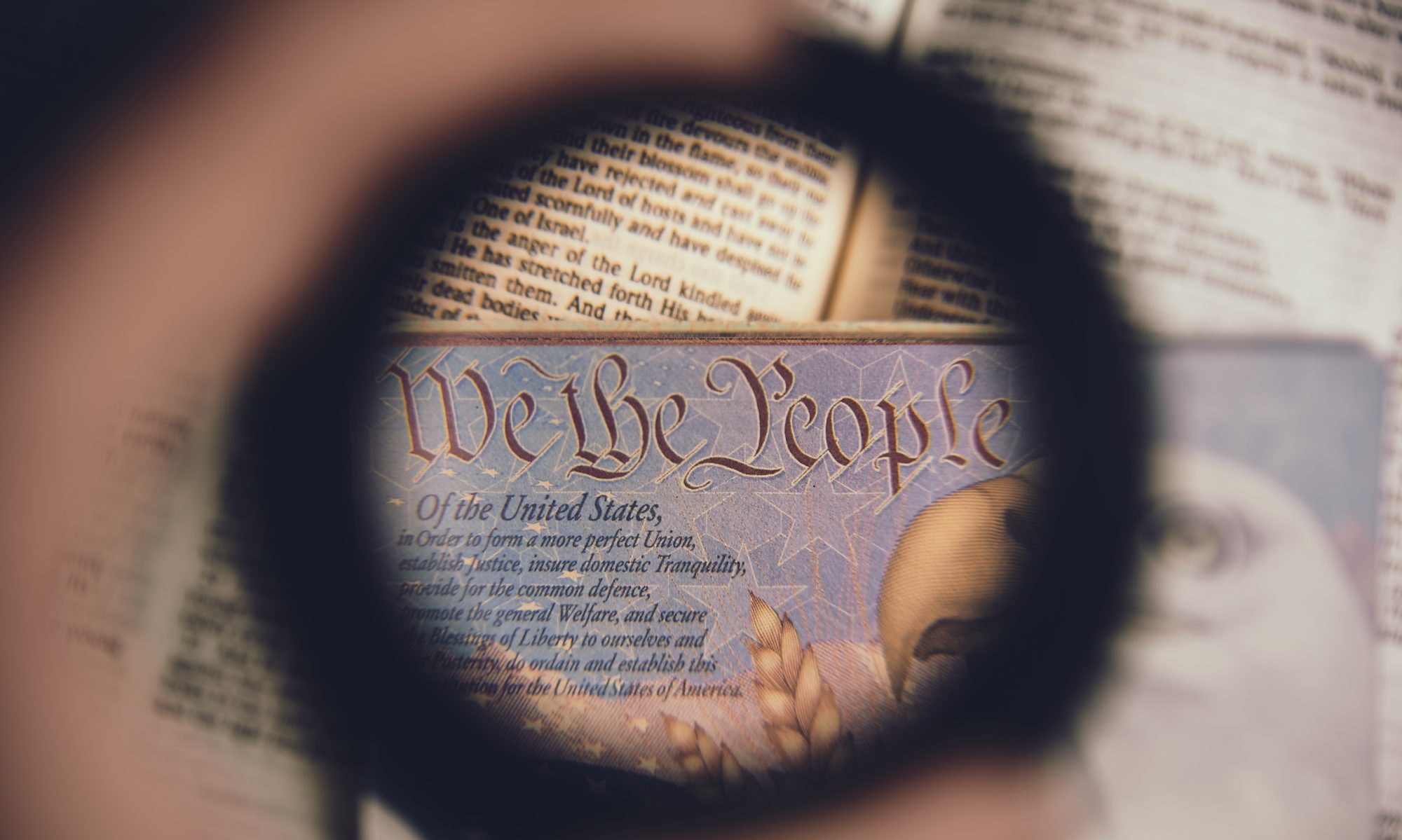By Ben Lewis Courtesy of the Tenth Amendment Center

The federal government is out of control, unable to limit its spending or satisfy its insatiable appetite for consuming the people’s liberties. And these tendencies seem to get worse with each election. Americans are starting to wonder whether or not Washington will ever fix itself. But, what if it didn’t need it to? What if the states held the power to hold Washington within the limits imposed on it by the Constitution? More and more people are coming to the realization that, through nullification, the states can do just that. But this concept, although rooted in history, is still new to many. Here are some common questions about nullification, the answers to which serve as an excellent introduction to this important, long-forgotten principle.
What is nullification?
Nullification is the principle that the individual states have the authority to refuse to comply with unconstitutional federal laws.
What is it based on?
Nullification arises from the understanding that the states, by ratifying the Constitution, brought the federal government into existence for a few specifically enumerated purposes. The powers that were delegated to it by the states in the Constitution are understood to be the only powers that Washington possesses. As such, it cannot legally do anything that is not specifically given to it as a power. This understanding was formalized by the Tenth Amendment.
Is it constitutional?
The Tenth Amendment states, “The powers not delegated to the United States by the Constitution, nor prohibited by it to the States, are reserved to the States respectively, or to the people.” Although the writers and ratifiers of the Constitution understood that the states retained all undelegated authority, the Tenth Amendment was added to ensure that this could never be challenged.
While nullification is not specifically mentioned in the Constitution, several key figures in early American history, including Thomas Jefferson, James Madison and Alexander Hamilton, openly supported the idea that states could refuse to comply with unconstitutional laws. Furthermore, it makes no sense to believe that the Founding Fathers would have added the Tenth Amendment and then made its enforcement unconstitutional. With this in mind, nullification is simply the manner in which the states can enforce the Tenth Amendment.
Isn’t the federal government supreme?
Article VI, Clause 2 of the Constitution, the so-called Supremacy Clause, states that, “This constitution, and the laws of the United States which shall be made in pursuance thereof…shall be the supreme law of the land…any thing in the constitution or laws of any state to the contrary notwithstanding.” Opponents of nullification love to cite this as evidence that the principle is unconstitutional.
The other thing that the opponents love to do is ignore those seven little words, “which shall be made in pursuance thereof.” The Constitution does not say that every law that the U.S. Government makes is supreme, only those that are made in pursuance of the responsibilities given to the federal government by the Constitution. Any law that it makes that is not in pursuance of the Constitution is not covered by the Supremacy Clause.
Incidentally, this is the only logical conclusion. Why would the framers expend all of the effort to explicitly say what the federal government’s limits are and then allow for sweeping powers in a single clause? That would be like carefully building a fireplace to safely provide warmth and then lighting the couch on fire. The only conclusion that makes sense is that this clause was added simply to enable the federal government to carry out the few responsibilities it was delegated.
Doesn’t the Supreme Court decide what’s constitutional?
There’s a common belief that when the Supreme Court declares something to be constitutional the question is settled. This belief is completely in opposition to the principles of the Constitution. Again, it would be logically inconsistent for the Founders to have strictly limited the federal government and then given a branch of that government the final say in determining the extent of its own powers.
This is why Thomas Jefferson said that the federal government “was not made the exclusive or final judge of the extent of the powers delegated to itself; since that would have made its discretion, and not the Constitution, the measure of its powers.”
The Supreme Court’s power of “judicial review” is supported by the Constitutional Convention debates, although there was some disagreement on the issue. Nevertheless, at no point was the Supreme Court given the ultimate power of deciding the constitutionality of federal laws.
Does nullification work?
Absolutely! As an example, in 2005 Congress passed the REAL ID Act which, among other things, attempted to set new federal regulations for state driver’s licenses. At least 25 states have formally opposed the Act and only 13 states have complied with it. Since 37 states are engaged in some form of noncompliance, the federal government has no way of enforcing the act.
How do I get involved?
Getting involved is as simple as contacting your state representative, your state senator and the governor’s office to remind them of their duty to resist unconstitutional legislation. You can join the Tenth Amendment Center and kelp us as we work to advance state-level resistance to Obamacare, infringements on the Second Amendment, the NDAA, and other unconstitutional activities. You can also like our Facebook page for updates and action steps.
